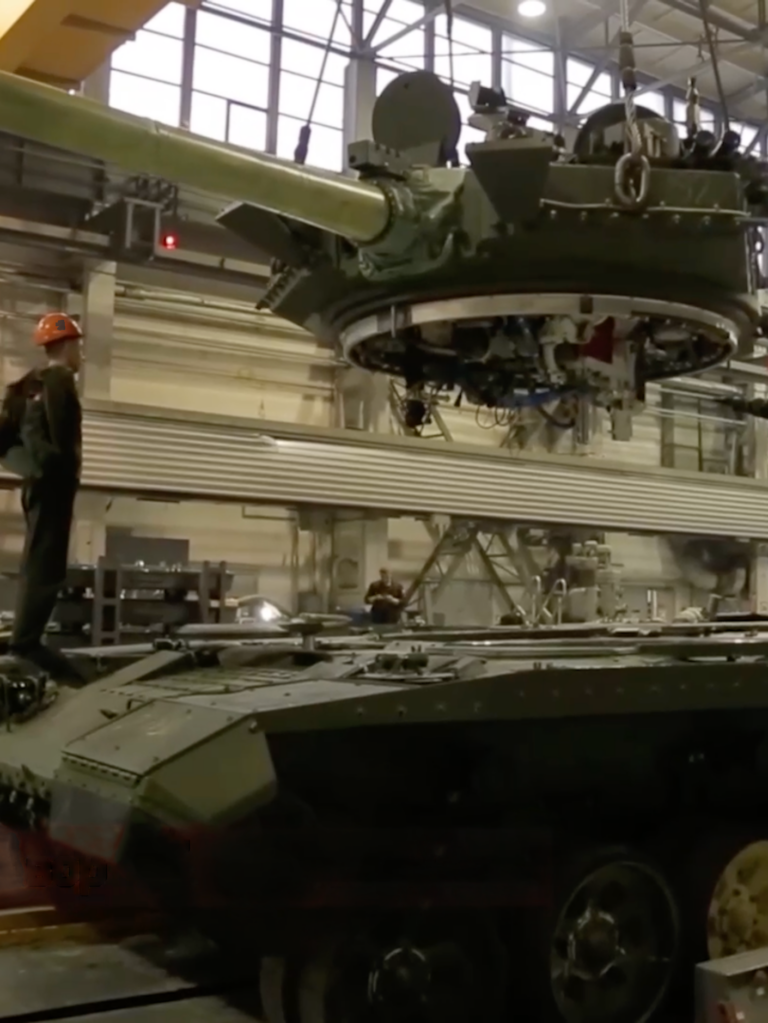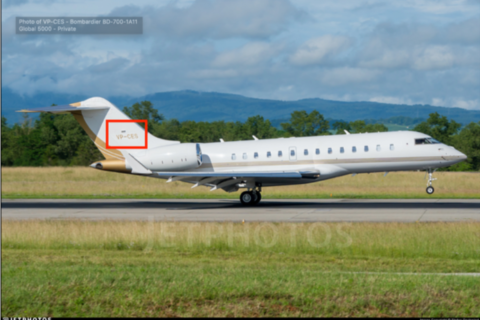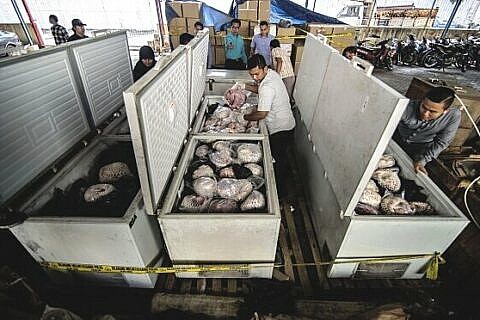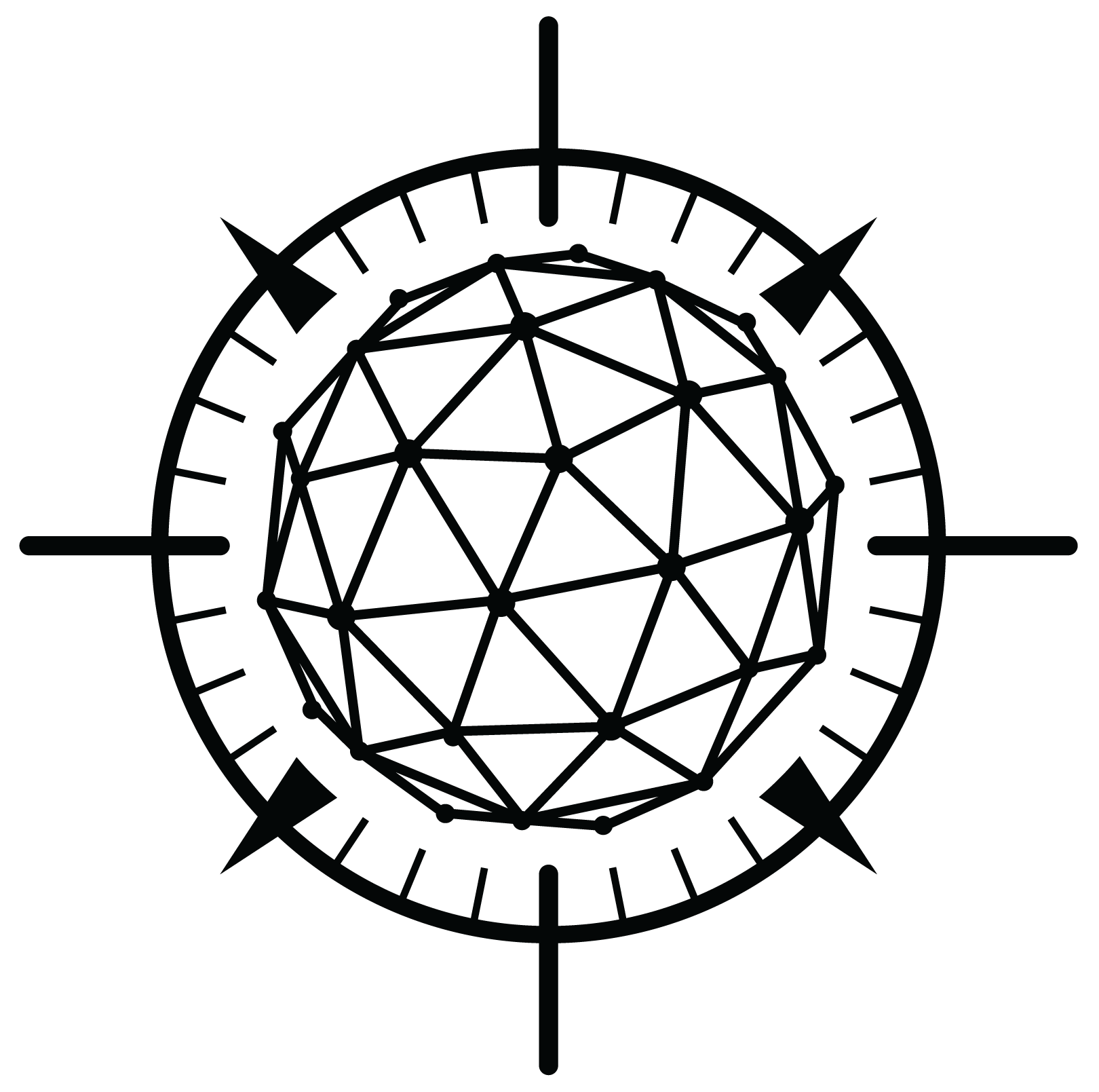Putting the Pieces Together

Background #
Since Russia’s full-scale invasion of Ukraine in 2022, the West has levied sanctions and made concentrated efforts to prevent Western goods from bolstering the Russian military-industrial complex. Turkey has stood out as an Achilles heel in the sanctions and export control landscape, and continues to undermine Western attempts to curb the flow of military-related technology Russia.
As we approach the two-year anniversary of Russia’s full-scale invasion of Ukraine, malign actors are exploiting Turkey as a key transshipment hub for Western-produced dual-use goods – technology that can be used for both military and civilian purposes – for onward delivery to Russia. This exploitation of Turkey as a transshipment point is of particular concern in the trade of computer numerical controlled (CNC) machine tools produced in the European Union (EU). Our analysis indicates that some profit-seeking businesses will likely continue to take advantage of this corridor to route such goods to Russian military-industrial contractors and bypass export controls.
Why do CNC machine tools matter to Russia? CNC machine tools are highly accurate and precise dual-use technology that can be used to create a wide variety of military goods, such as missile components and aircraft parts. Russia has a CNC machine tool problem: the country heavily depends on foreign-produced CNC machine tools, with the defense industry historically driving demand. While Russia has been making efforts to bolster the domestic production of machine tools, even Russian industry figures note that it will take years for domestically produced machines to develop and become competitive. Given Russia’s need to ramp up and maintain defense production to fuel its war of aggression on Ukraine, CNC machine tools present a near-term chokepoint for disrupting Russia’s military-industrial manufacturing capabilities.
Why EU-produced machine tools? Russia’s historical reliance on EU-produced CNC machine tools – perceived by many to be of superior quality – has made it challenging for Moscow to fully pivot from these trade relationships. Firms in EU countries like Germany and Italy acted as notable machine tool suppliers for Russia in the lead-up to Russia’s full-scale invasion of Ukraine on February 24, 2022.[1] Despite the increased EU export controls introduced in the wake of the full-scale invasion, Russian trade records show that EU-produced machine tools are still flowing into Russia, indicating continued demand despite restrictions and associated logistical difficulties.
What is Turkey’s role in the transshipment of EU-produced machine tools? Despite the efforts of Turkish authorities to halt transshipment to Russia, Russian trade data indicates that the country remains one of the most prominent dual-use procurement pathways for Putin’s war machine.[2]
Our Approach #
C4ADS used publicly available information to analyze the transshipment of EU-produced CNC machine tools to Russia via Turkey, focusing on a specific case to highlight the risks left by the Turkish transshipment route. For this report, we review cases where goods have been sent from the EU to Turkey, after which they are shipped from Turkey to Russia. To do so, we analyzed Russian and Turkish trade records, Russian and Turkish corporate records, and Russian procurement records.
When cross-referencing trade records between different jurisdictions (such as between Turkey and Russia), we note that there may be variations in the information reported on cargoes’ contents or even “unreported” shipments. Such discrepancies may reflect incomplete trade data, inaccurately reported information provided to customs, or illicit diversion of goods. Nonetheless, the data used for this report is the most comprehensive reflection of trade activity available in the public domain.
Identifying Transshipment in Russian Trade Data #
Possible transshipment schemes can be identified based on discrepancies in Russian trade data between the origin of the goods and the exporter’s location. For this case, C4ADS started screening for shipments where the country of origin was an EU country, but the consignor country was recorded as Turkey. Since the onset of Russia’s full-scale invasion of Ukraine, there has been a spike of such cases for “cargoes” – the most precise breakdown of the contents of a shipment as reported in available Russian trade records – containing EU-origin CNC machine tools sent from Turkey.
Reviewing available Russian trade records for these discrepancies indicates that Turkish company JACBAC TECHNOLOGY DIŞ TİCARET LİMİTED ŞİRKETİ (hereafter Jacbac) appears to have sent at least 24 “cargoes” of EU-produced CNC machine tools to Russia between September 2022 and December 2023.[3] However, it was the reported content of the “cargoes” sent by Jacbac that drew our attention: Multiple cargoes are labeled in Russian trade records as containing “new” machines, with some explicitly labeled as having been produced in 2023.[4] Given that these machines were reported as new, one can reasonably deduce that they were very likely recently sent from the EU, in contravention of post-invasion EU sanctions and export controls.
Moreover, the Russian trade data indicated multiple “cargoes” marked as containing model numbers for five-axis CNC machine tools, highly precise machinery that can be used to produce aircraft parts and other military goods.[5] Under EU regulations, five-axis CNC machine tools with contouring control have long been recognized as a controlled dual-use technology. Along with the clear EU-based supply line highlighted above, these findings indicate that Jacbac likely acted as a conduit for shuttling new, cutting-edge machinery into Russia.
Russian Imports Involving Jacbac:
| DATE | IMPORTER | GOODS DESCRIPTION | GOODS PRODUCER | SIX-DIGIT HS CODE |
| Aug 12, 2023 | Avbis LLC (ООО Авбис, hereafter Avbis) | Metal-cutting boring-milling machine tool, with computer numerical control… model VHF-360 TI… model VHF-380 TI… | SMT Company AB | 845931 – Numerically controlled machine tools for boring-milling by removing metal |
| June 5, 2023 | Avbis | Metal-working, boring-milling machine tool, with computer numerical control, model VHF-330 TI, New, year of manufacturer 2023… | Swedish Machine Tool Company AB | 845931 – Numerically controlled machine tools for boring-milling by removing metal |
| May 27, 2023 | Yumak LLC (ООО Юмак, hereafter Umac) | Machining center, with computer numerical control, vertical, new, 2023… | Maschinenfabrik Berthold Hermle AG | 845710 – Machining centers for working metal |
| Nov 24, 2022 | Avbis | Universal vertical-milling machining center Spinner, model U1530 TBPC-44… with CNC system… | Spinner Bulgaria Ltd. | 845710 – Machining centers for working metal |
Jacbac has been shipping these machine tools to two Russian consignees that have appeared in Russian trade records as recipients of likely transshipped goods via Turkey: military-industrial contractor Umac, and a second firm, Avbis.[6] Comparison of trade data and procurement records indicate that Russian military end-users’ needs for EU-produced CNC machine tools are often facilitated by a network of Russian military-industrial contractors that procure the machines on behalf of the final recipients. While the EU has enacted export controls against several Russian military industrial contractors, neither Umac nor Avbis have been directly named in these enforcement actions.
Using Network Analysis to Identify Transshipment Schemes #
While C4ADS identified Jacbac as a transshipper of EU-produced CNC machine tools, Russian trade data does not provide any definitive indication as to how the machines in question ended up in Turkey. Just because a transshipper supplies a certain manufacturer’s goods to Russia does not necessarily mean that the manufacturer sent the goods to the transshipper or that the manufacturer is even aware of the situation. Restricted goods can fall into the hands of transshippers through various means, including via the second-hand market.
The most readily available means to observe how a Turkish entity may have acquired the foreign goods that it subsequently transshipped to Russia is by examining Turkish trade records. For the Jacbac case, however, our available Turkish trade records did not clearly identify any instances showing Jacbac importing goods to Turkey; it is possible that the imports are not captured in available sources, or that the network has been using alternative means to obtain the machine tools from the EU. Network analysis of the entities and individuals linked to Jacbac, coupled with broader searches across Turkish trade data for all CNC machine tool imports from the EU to Turkey, suggest that the Jacbac network is engaging in the latter.
Turkish corporate records spanning from 2019 through 2023 indicate that members of the Jacobson Backman family, which owns and operates a series of Swedish entities including CNC machine tool manufacturer SMT Swedish Machine Tool Company AB, likely owned Jacbac until at least February 2023 along with business partner Fatih Elagöz, a Turkish resident of Sweden.[7] According to those same Turkish corporate records, since February 2023, Turkish national Selçuk Elagöz has acted as the manager and sole shareholder of Jacbac, and currently functions as its liquidator.[8]
Having these key names on hand helps narrow the pool of possible importers of note. Records indicate that Turkish entity MERTEGE MAKİNA SANAYİ VE TİCARET LİMİTED ŞİRKETİ (hereafter Mertege) imported at least nine cargoes of EU-origin machine tools, including six cargoes that specified they contained five-axis machine tools, from entities in Germany and Sweden between August 2022 and June 2023.[9] Mertege’s corporate records contain familiar names: John Victor Jacobson Backman and Fatih Elagöz established Mertege in May 2022, shortly after the start of Russia’s full-scale invasion of Ukraine.[10] Additionally, as occurred with Jacbac, Selçuk Elagöz became Mertege’s sole shareholder in February 2023.[11]
While the trade records alone cannot definitively confirm that Jacbac’s exports to Russia contained machine tools first imported to Turkey by Mertege, comparing the records does indicate that there were multiple correlations between the shipments when comparing Russian and Turkish trade records. To illustrate this potential trajectory, C4ADS has mapped out Mertege’s import of two CNC machine tools: a five-axis CNC Hermle C250 U machining center from a third-party supplier in Germany, and Jacbac’s subsequent export of a 2023 Hermle CNC machining center to Russian company Avbis.
- Arrival in Turkey from Germany
- Departure from Turkey to Russia
- On 26 June 2023, Turkish trade records show that Jacbac exported at least one unspecified model of five-axis CNC “processing center” to Avbis.[14] The net weight is listed as 8,500 kg and invoice value as EUR 142,000.[15] Despite Russia trade records showing Avbis being an Russian company,[16] Turkish trade records list the cargo’s destination country as Kazakhstan,[17] potentially indicating that this cargo was a “ghost export.”
- Arrival in Russia from Turkey
- On 7 July 2023, Russian trade records show Avbis imported at least one cargo containing a new 2023 CNC machining center produced by Maschinenfabrik Berthold Hermle AG from Jacbac.[18] The cargo is listed as having a net weight of 8,240 kg, an invoice value of USD 654,350, and an “unknown” destination country.[19]
Jacbac’s apparent willingness to ship EU-produced machine tools to Russia is being capitalized upon by Russian military-industrial contractors – Umac and Avbis.
While only one of Jacbac’s shipments was sent directly to Umac, this single shipment provides a strong indication about the ultimate end users of the machine tools discussed above. Umac has a public history of supplying machine tools – both domestic and foreign-produced – to the Russian military-industrial complex.[20] [21] Umac’s past customers include battle tank manufacturer JSC F.Z. Dzherzhinsky “UralVagonZavod” Research and Production Corporation (АО Научно-производственная корпорация “Уралвагонзавод” имени Ф.Э. Дзержинского)[22] and land and naval ammunition producer FSE Nizhny Tagil Institute of Metal Testing (ФКП “Нижнетагильский институт испытания металлов”).[23]
In 2023, financial records provided by the Economic Security Council of Ukraine indicate that Umac has continued its military-industrial procurement activities, with customers including aerial and naval munitions manufacturer JSC Tactical Missiles Corporation (АО Корпорация “Тактическое Ракетное Вооружение”) and ammunition casing producer JSC Serov Mechanical Plant (АО “Серовский Механический Завод,” hereafter SMZ).[24] Indeed, Ukrainian investigative project Trap Aggressor and think tank StateWatch highlighted Umac’s attempted procurement of a foreign-produced machine tool via Turkey for SMZ in September 2023.
Trade records indicate that the majority of Jacbac’s exports to Russia have been sent to Avbis, which Umac is believed to be using to obtain restricted technology. While Umac has an easily accessible history of military-industrial procurements, traces of public procurement activity by Avbis are notably slim, making it a convenient facilitator for illicit imports. Financial records from 2023 suggest that Avbis has been selling multiple imported goods to Umac, indicating that Avbis may be funneling the machine tools it imports from Jacbac to Umac for further procurement activity.[25] In addition, these financial records further indicate that Avbis may directly dabble in military-industrial procurement as well: these records show that Avbis sold at least one imported good to JSC PO Sevmash (АО ПО Севмаш), which builds and repairs submarines.[26]
Conclusion and Recommendations #
At the time of writing, the EU has not openly imposed any export restrictions on Jacbac, Umac, or Avbis despite their crucial roles in transshipping EU-produced machine tools. As this investigation illustrates, however, simply sanctioning and placing export restrictions on a single entity alone is inadequate for slowing the schemes currently being used to shuttle highly advanced machinery to Russian defense contractors facilitating the war in Ukraine. Illicit networks must be tackled at all stages of the supply chain, especially at the initial step of exiting the EU and at critical transshipment points.
The trade landscape is constantly shifting, and the issue of transshipment has proven to be too large a challenge for one group to tackle on its own. However, just because transshipment can be difficult to detect does not mean that the problem should fester unchecked. It is possible to identify transshipment schemes using cross-jurisdictional, publicly available records. Actioning these efforts requires cooperation on the part of the private sector, policymakers, and civil society.
The private sector must be aware of the legal and reputational risks of trading dual-use goods in transshipment hotspots like Turkey. When evaluating whether to send a CNC machine tool to companies in countries with high transshipment risk, manufacturers and suppliers should conduct due-diligence checks on both the intended consignee and end user. Due to the prevalent use of intermediaries, it is worthwhile for companies to comprehensively audit their supply chain.
- EU regulations provide that it is “prohibited to sell, supply, transfer or export, directly or indirectly, goods” contrary to export controls. This language is broad enough to cover nearly all parties involved in a transaction. A party’s failure to exercise due diligence to avoid participation in a prohibited transaction may constitute a violation of EU regulations.
- Government guidance on due diligence practices is available to the private sector. Governments can help the private sector implement this guidance by clearly and widely communicating transshipment risks, export restrictions, and recommended steps to avoid violations, as well as by providing or facilitating corporate due-diligence training.
EU member state policymakers should ask hard questions about how to screen for transshipment before goods are shipped abroad, not after the fact. This means evaluating the risks inherent to certain trade routes – for example, Turkey has an inconsistent track record of sanction and export-control enforcement – and actively taking steps to mitigate risk without stifling legitimate transnational business. Perhaps this could come in the form of enhanced customs scrutiny or end-use checks for exports of sensitive dual-use technology, such as previously proposed by Germany.
- To ease the burden on the private sector when conducting due-diligence checks, policymakers should consider further extending sanctions and export restrictions to clearly signal which entities should not receive EU-produced machine tools. These could extend to additional Russian military-industrial contractors and end users, as well as to the third-country corporate transshippers that supply them. Having clear sanctions and export restrictions on these entities also supports law enforcement agencies in bringing actions in cases where transshipment unfortunately did occur. As outlined above, the EU has neither directly sanctioned nor placed export restrictions on any of the entities listed in this report.
- The EU authorities may also consider using as a resource the lists of Military End Users and Specially Designated Nationals compiled by the US Departments of Commerce and Treasury, respectively.
Civil society can assist both government and the private sector by applying multi-jurisdictional trade and network analysis to help identify cases of transshipment, and to hold both government and private sector accountable to regulations designed to mitigate drivers of conflict.
- With more robust insights, civil society can inform conversations among government and private sector partners about Russian military-industrial contractors, transshippers, and procurement schemes to help bolster due diligence efforts and shape the sanctions-policy landscape.
Notes
[1] Russian trade data
[2] Russian trade data
[3] Russian trade data
[4] Russian trade data
[5] Russian trade data
[6] Russian trade data
[7] Turkish Trade Registry Gazette
[8] Turkish Trade Registry Gazette
[9] Turkish trade records
[10] Turkish Trade Registry Gazette
[11] Turkish Trade Registry Gazette
[12] Turkish trade records.
[13] Turkish trade records.
[14] Turkish trade records.
[15] Turkish trade records.
[16] Russian trade records.
[17] Turkish trade records.
[18] Russian trade records.
[19] Russian trade records.
[20] Russian procurement records
[21] Russian procurement records
[22] Russian procurement records
[23] Russian procurement records
[24] Financial records
[25] Financial records
[26] Financial records





